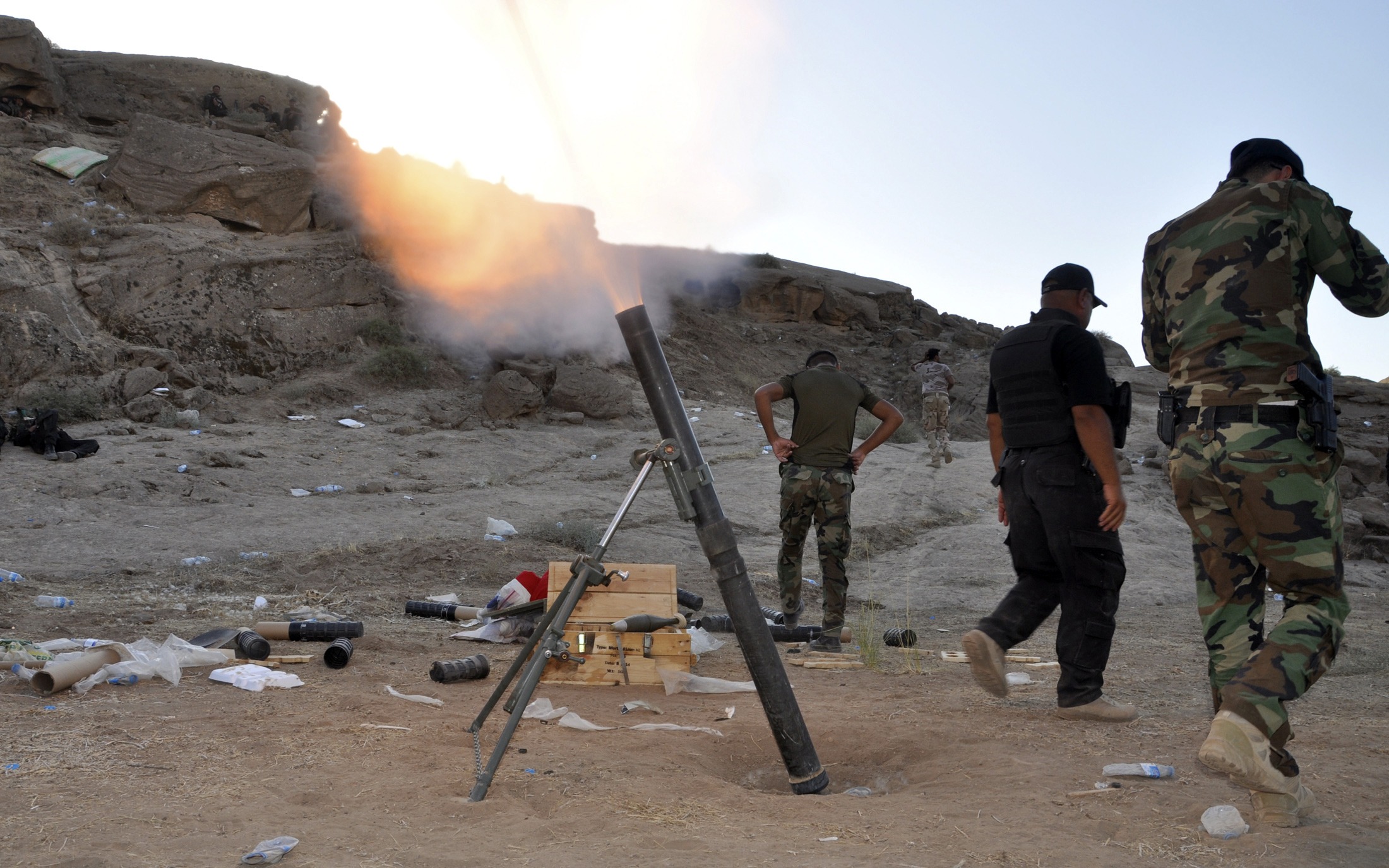The U.S. military is flying Apache helicopters against Islamic State rebels in Iraq for the first time, exposing U.S. troops to greater risk from ground fire as they help Iraqi forces battle the Islamist group that has overrun parts of the country.
U.S. troops flew helicopters against Islamic State fighters on Sunday and again on Monday as they struck at mortar teams and other units near Fallujah, said a spokesman for Central Command, which is responsible for U.S. forces in the Middle East.
"This was the first time rotary wing aircraft were used in coordination with and in support of ISF (Iraqi Security Force) operations," Army Major Curtis Kellogg said in an email. "The Iraqi government asked for support with this capability near Fallujah to push back (Islamic State)."
U.S. officials, speaking on condition of anonymity, said the helicopters that were used were Apache attack helicopters.
Richard Fontaine, president of the Center for a New American Security think tank, said the military's decision to use Apaches "demonstrates that they've only achieved limited results with the air strikes from fighters and bombers and drones."
Christopher Harmer, a former Navy aviator who is an analyst at the Institute for the Study of War think tank, said it was a significant escalation in the level of risk being taken by U.S. troops assisting the Iraqi military.
"Fixed-wing aircraft flying at 30,000 feet (9,000 meters) are completely immune from the type of weapons that Islamic State fighters have, but a helicopter is not," Harmer said.
"When you're flying a helicopter 150 feet (50 meters) above the ground, that helicopter can be shot with a rocket-propelled grenade or a heavy machine gun ... so, yes, it is much more dangerous," he added.
Military: not "mission creep"
Army Colonel Steve Warren, a Pentagon spokesman, said the decision to use helicopters was taken because of the nature of the targets, but he did not offer details on who made the decision.
Harmer said helicopters would be much more effective at supporting Iraqi ground troops directly engaged in combat with Islamic State fighters because they fly lower and more slowly and are more capable of identifying individual targets.
"If you've got Iraqi army fighting against Islamic State fighters, it's much better to have helicopters supporting the Iraqi army than fixed-wing aircraft," he said.
Warren said the military considered the risk of flying helicopters before deploying them.
He rejected any notion that using helicopters amounted to mission creep. "The mission is still the same. This is using the correct tool for the job," Warren said.
But Fontaine disagreed, saying "the mission has been creeping along from the very beginning."
He said the administration's effort to draw a line between putting combat troops on the ground in Iraq and providing air support for Iraqi forces was rapidly becoming "a distinction without a huge amount of difference."
"You know 1,600 troops in Iraq is boots on the ground, and air strikes and helicopter assaults is combat," Fontaine said.





















































